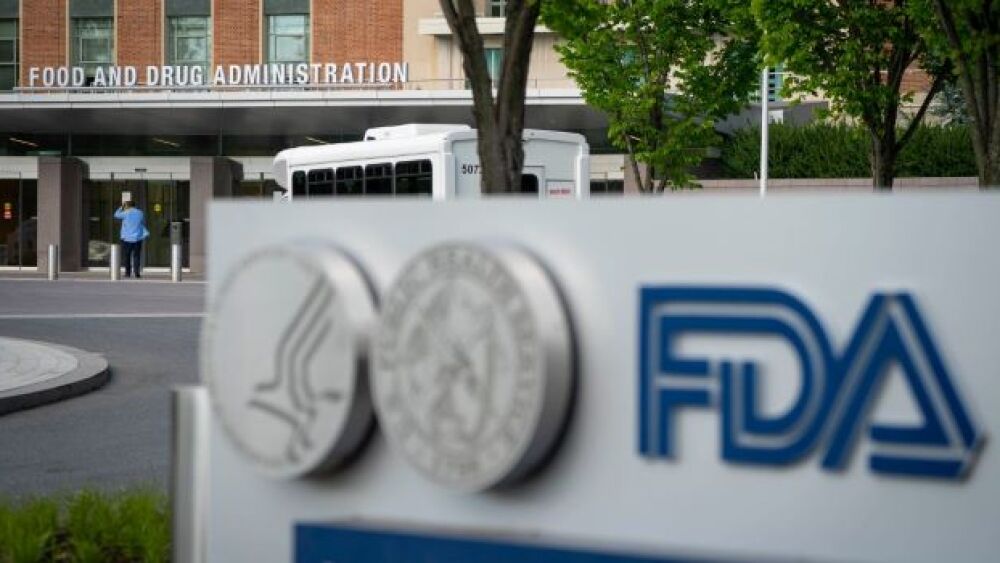HUTCHMED has completed the rolling submission of its New Drug Application to the FDA for fruquintinib, its candidate for refractor metastatic colorectal cancer.
Pictured: FDA sign in front of building/Sarah Silbiger/Getty Images
HUTCHMED has completed the rolling submission of its New Drug Application (NDA) to the FDA for fruquintinib, its candidate for refractory metastatic colorectal cancer (CRC), the company announced Friday.
Data from the Phase III FRESCO-2 study supported fruquintinib’s bid. In the trial, HUTCHMED’s hopeful cut the risk of death by 34% and cut disease progression or death by 68% compared to the placebo. Fruquintinib also resulted in a disease control rate of 55.5%.
FRESCO-2 was a multi-regional clinical trial enrolling 691 patients from the U.S., Europe, Japan and Australia.
As for safety, grade 3 or higher adverse events arose in 62.7% of the fruquintinib arm, as opposed to only 50.4% of placebo comparators. Common side effects included hypertension, asthenia and hand-foot syndrome. Treatment-related adverse events that led study dropouts were well-balanced between the treatment groups.
HUTCHMED presented these FRESCO-2 data at the European Society for Medical Oncology Congress in September 2022. At the time, Arvind Dasari, associate professor, Department of Gastrointestinal Medical Oncology, The University of Texas MD Anderson Cancer Center, said these results show fruquintinib’s potential to address a critical unmet need in refractory metastatic CRC.
With more than 150,000 new cases diagnosed in 2022, CRC is the third most common cancer in the U.S. When caught early, CRC can be cured and has a forgiving 5-year survival rate of 91%. The chances of survival drop to 72% once cancer has spread to neighboring organs and to 15% once the disease has made its way to distant parts of the body. Over 20% of CRC patients are diagnosed at this late stage.
Fruquintinib is an orally available compound that can selectively and strongly inhibit the VEGF receptors 1, 2 and 3, preventing tumors from forming new blood vessels to support their growth and division while minimizing off-target effects.
This mechanism of action, combined with its promising late-stage performance, has caught Takeda’s attention. In January, the Japanese multinational dropped $400 million and pledged up to $730 million more for exclusive rights to develop and commercialize fruquintinib outside of mainland China, Hong Kong and Macau.
Still, not all has been smooth sailing for HUTCHMED’s candidate. In November 2022, initial data from the Phase III FRUTIGA study showed that fruquintinib, in combination with paclitaxel, missed one of its primary endpoints.
Compared with paclitaxel alone, the investigational drug combo did not improve overall survival in patients with advanced gastric or gastroesophageal junction adenocarcinoma.
Fruquintinib still met its other primary endpoint, leading to a statistically significant and clinically meaningful improvement in progression-free survival.






